
Letizia Lucchetti
Mock Yourself
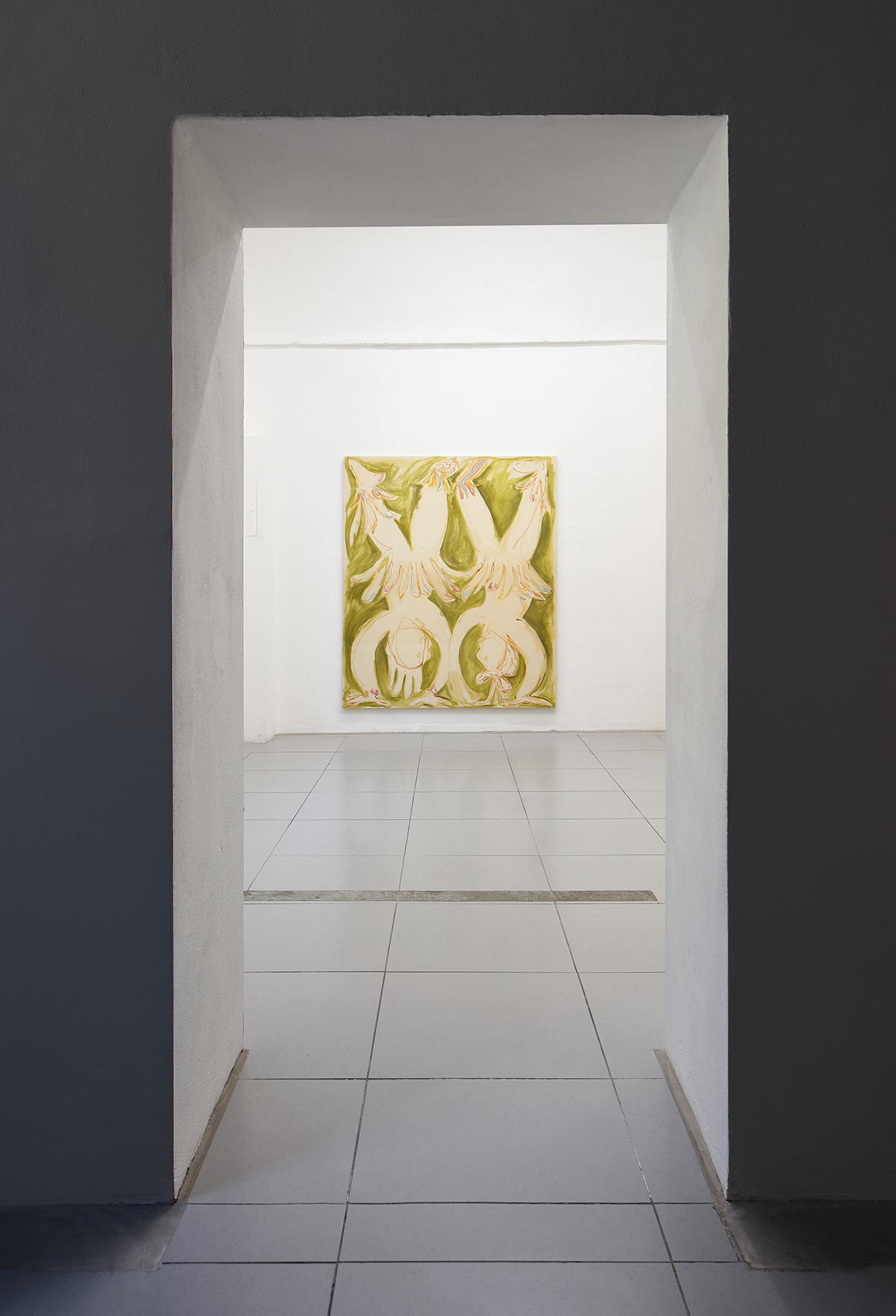
Letizia Lucchetti, "Mock Yourself" installation view.
Advertisement
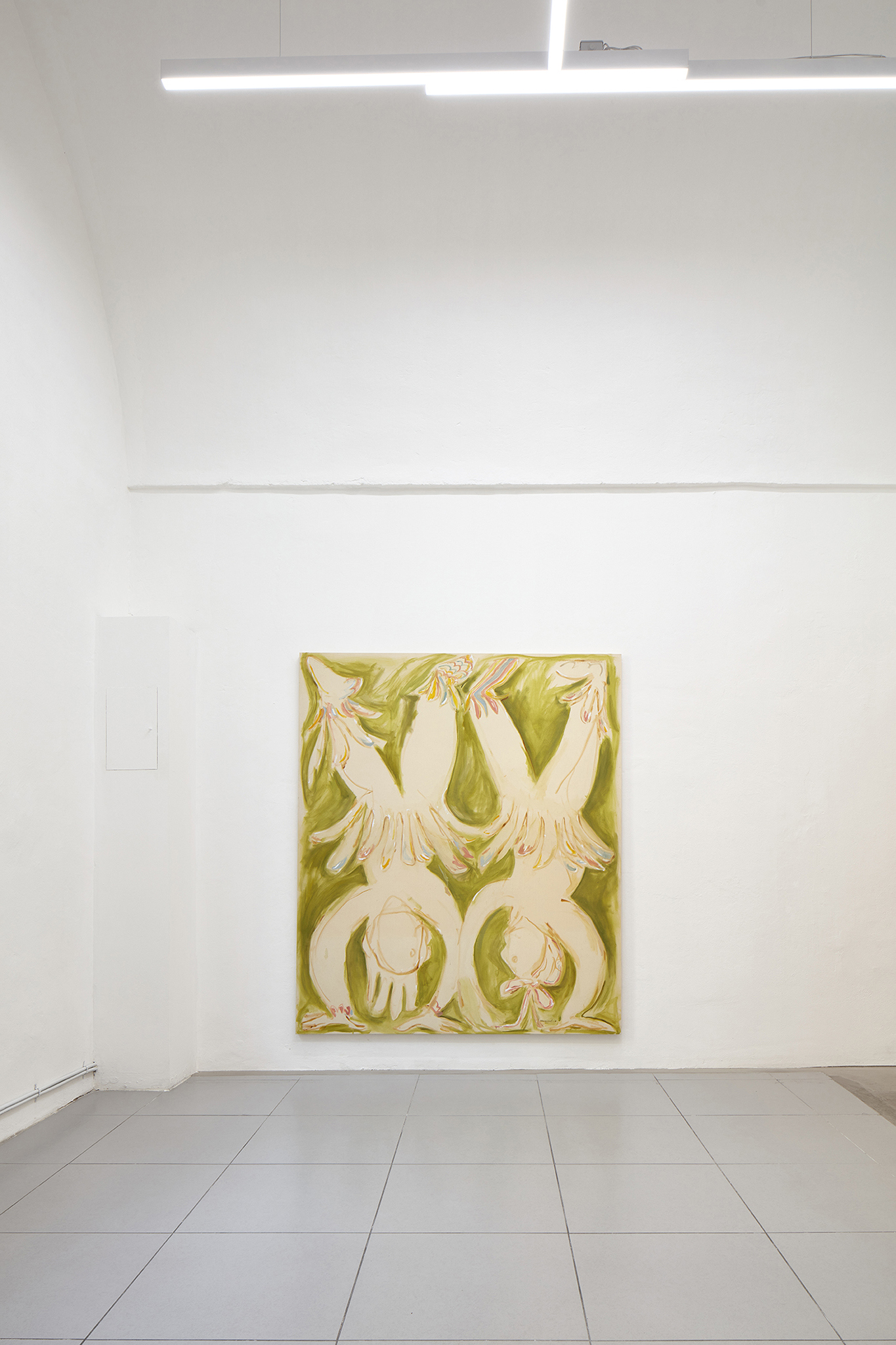
Letizia Lucchetti, "Today in Balance", 2024 (Oil on canvas, 200 x 170 cm).
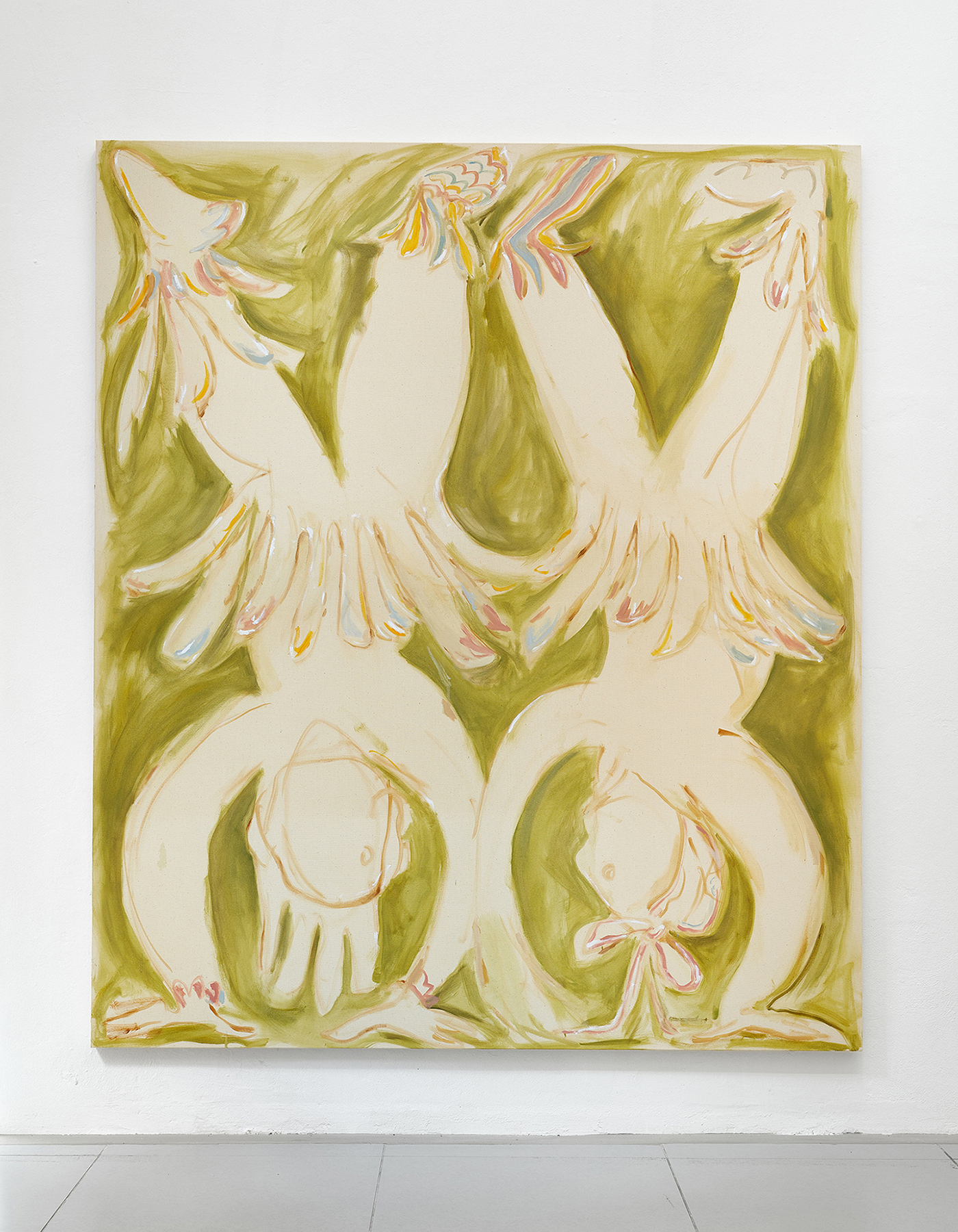
Letizia Lucchetti, "Today in Balance", 2024 (Oil on canvas, 200 x 170 cm).
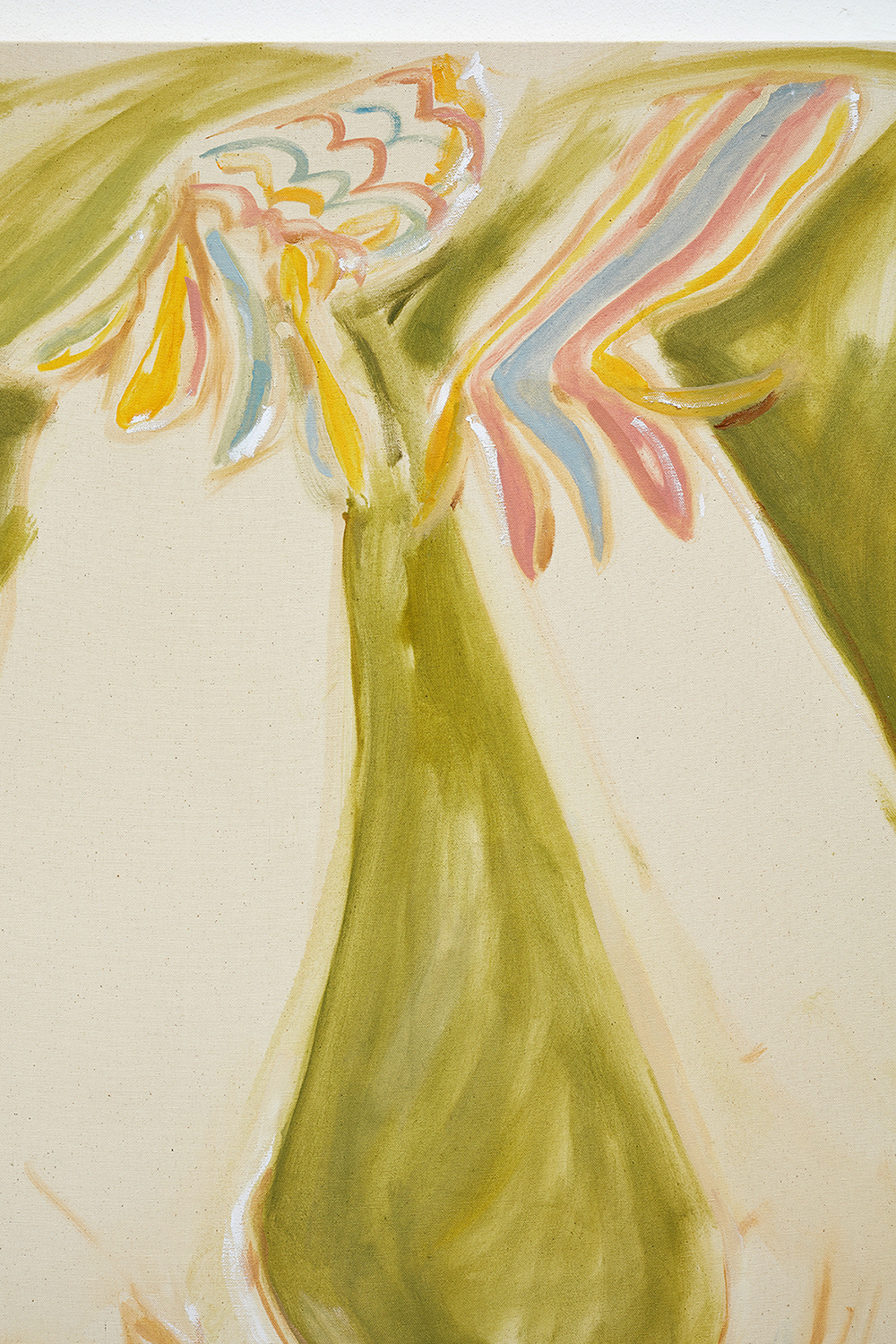
Letizia Lucchetti, "Today in Balance" (detail), 2024 (Oil on canvas, 200 x 170 cm).
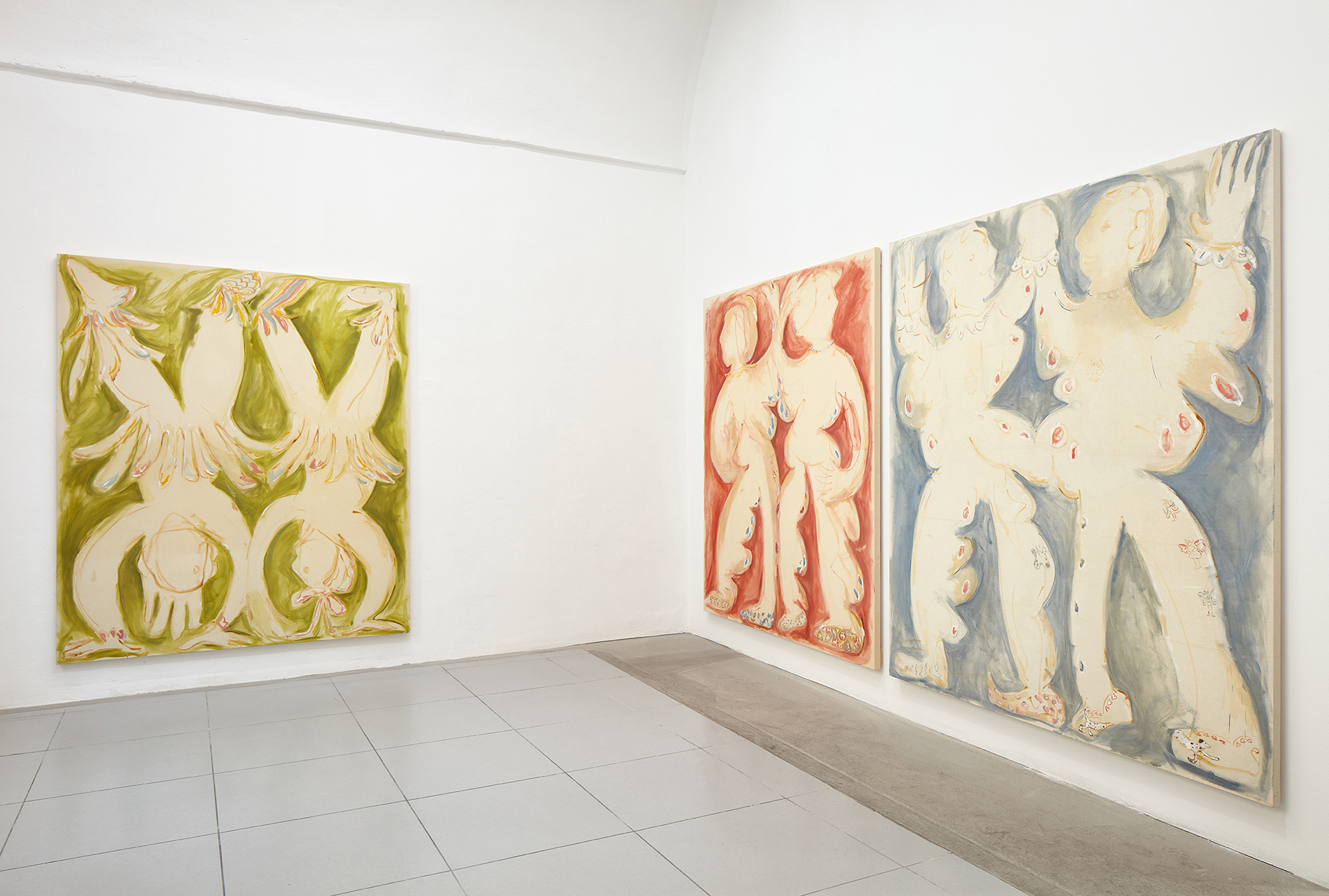
Letizia Lucchetti, "Mock Yourself" installation view.
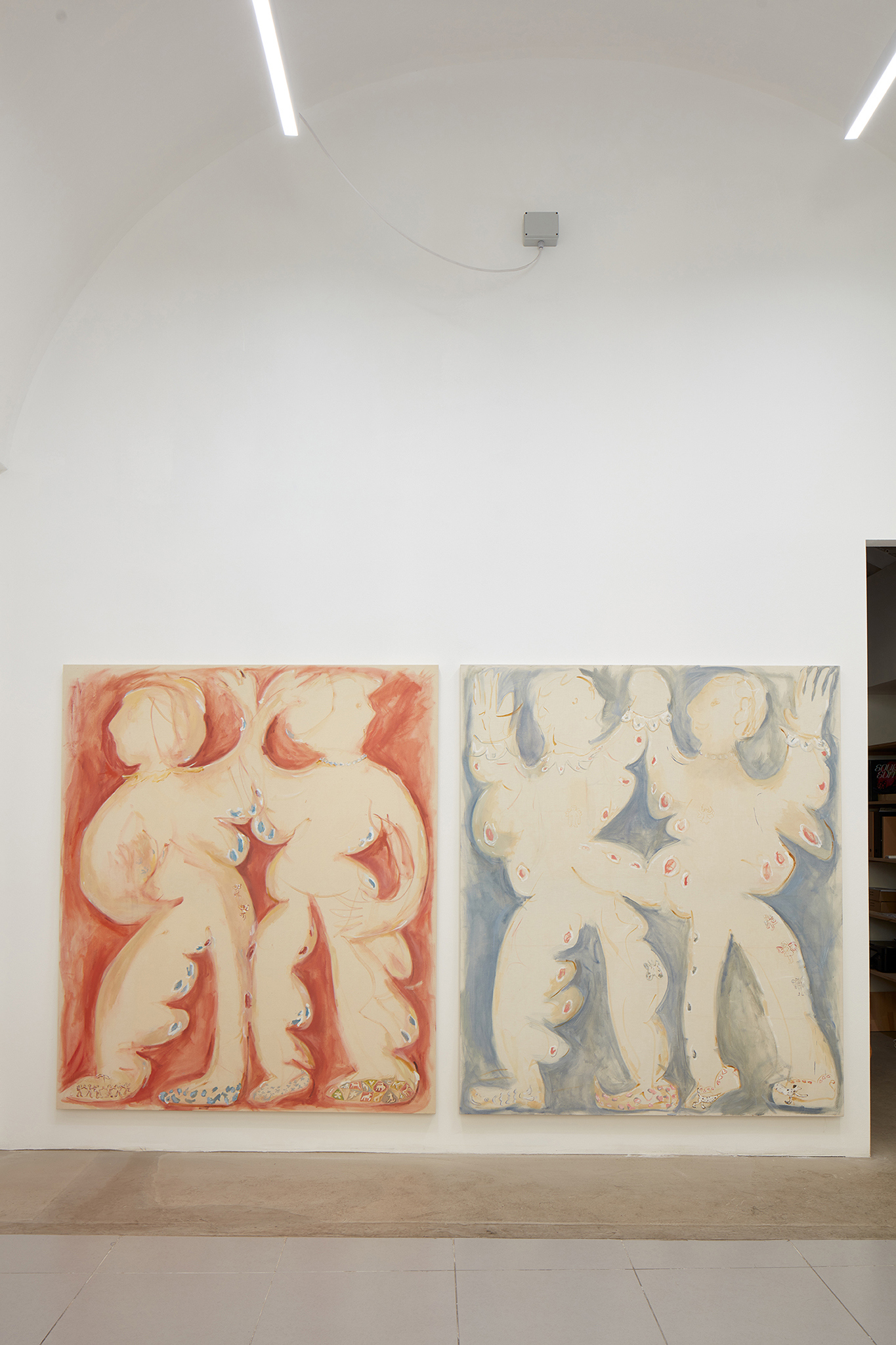
Letizia Lucchetti, "Mock Yourself" installation view.
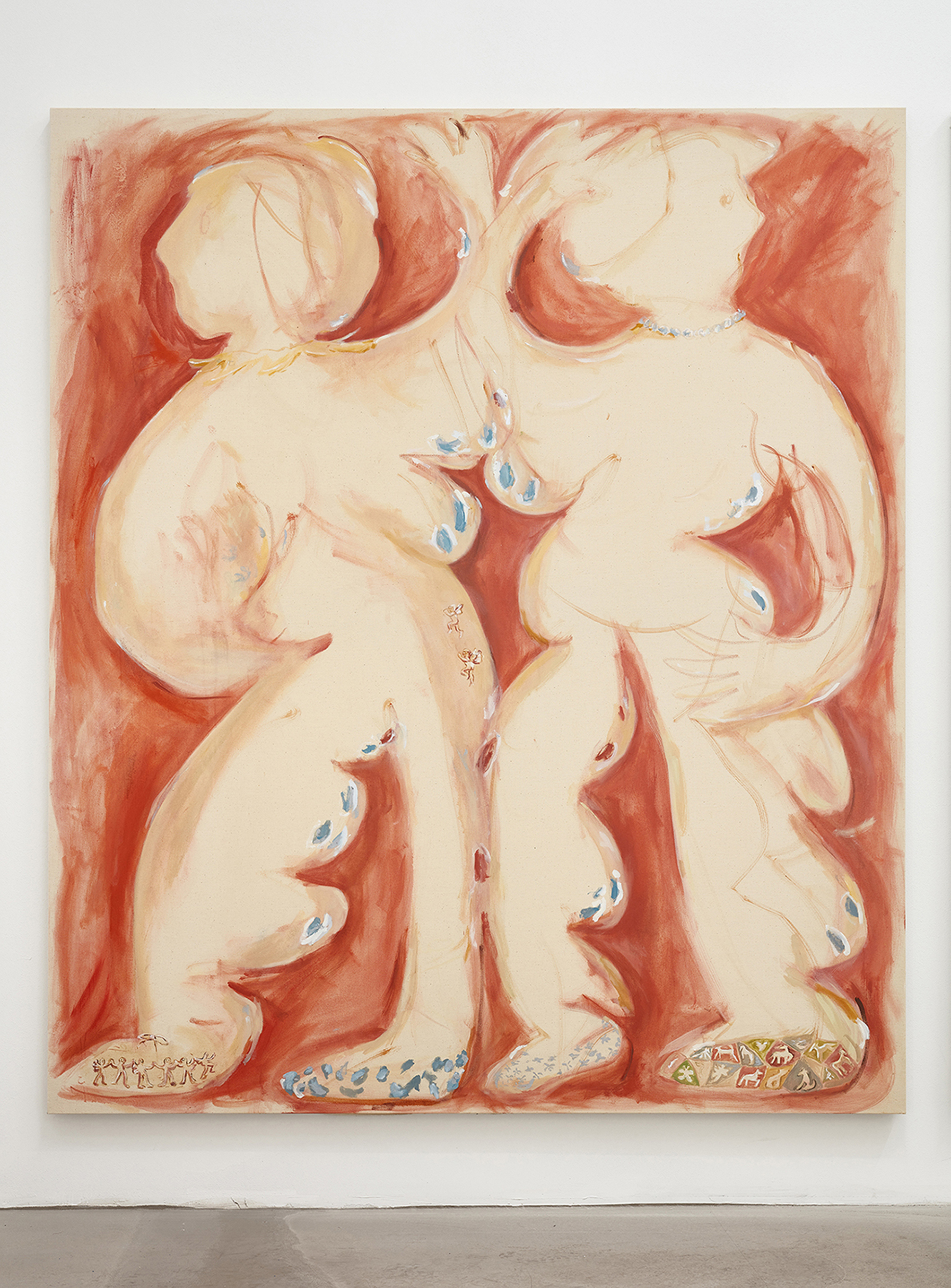
Letizia Lucchetti, "At the Angels’ Party", 2024 (Oil on canvas, 200 x 170 cm).
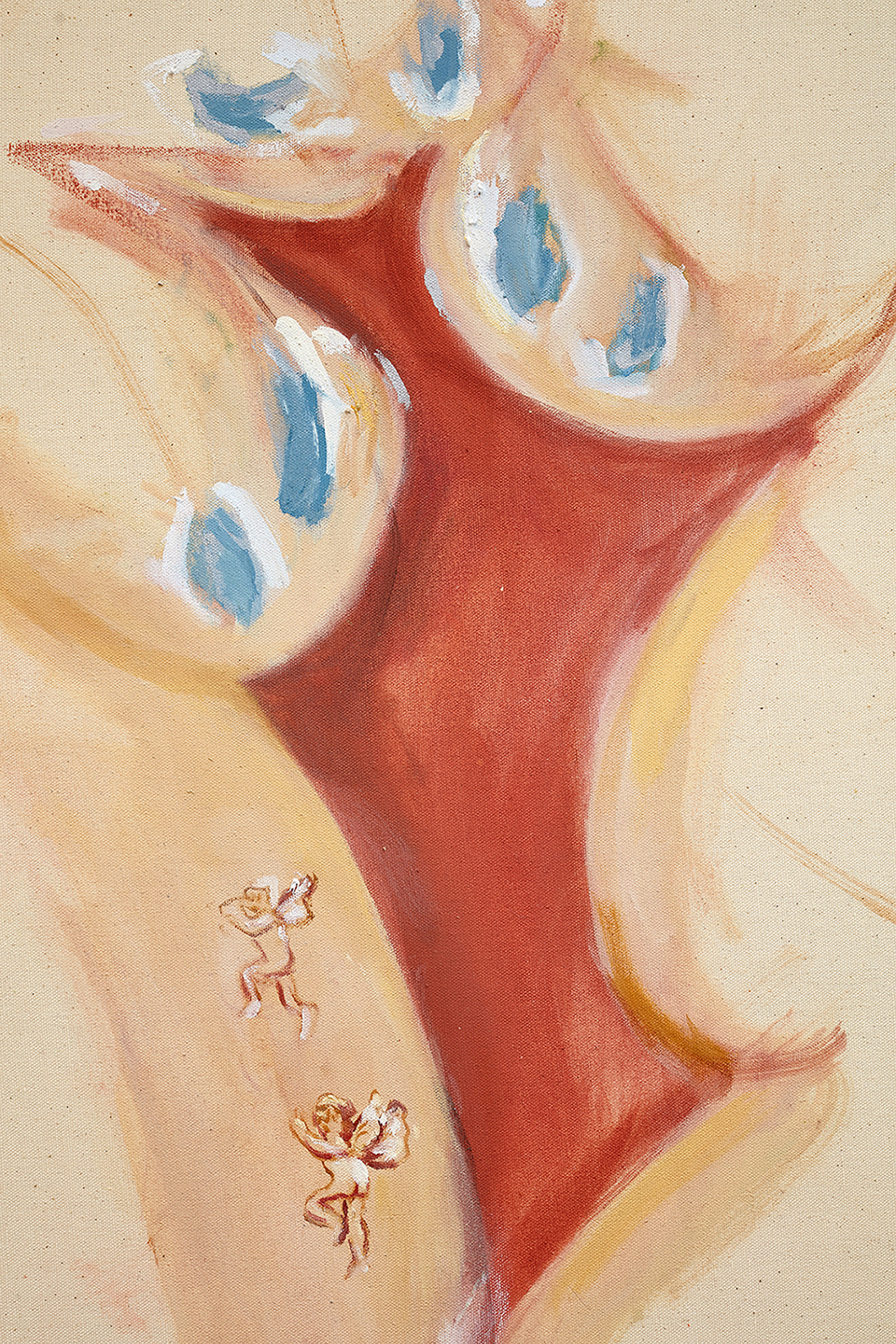
Letizia Lucchetti, "At the Angels’ Party" (detail), 2024 (Oil on canvas, 200 x 170 cm).
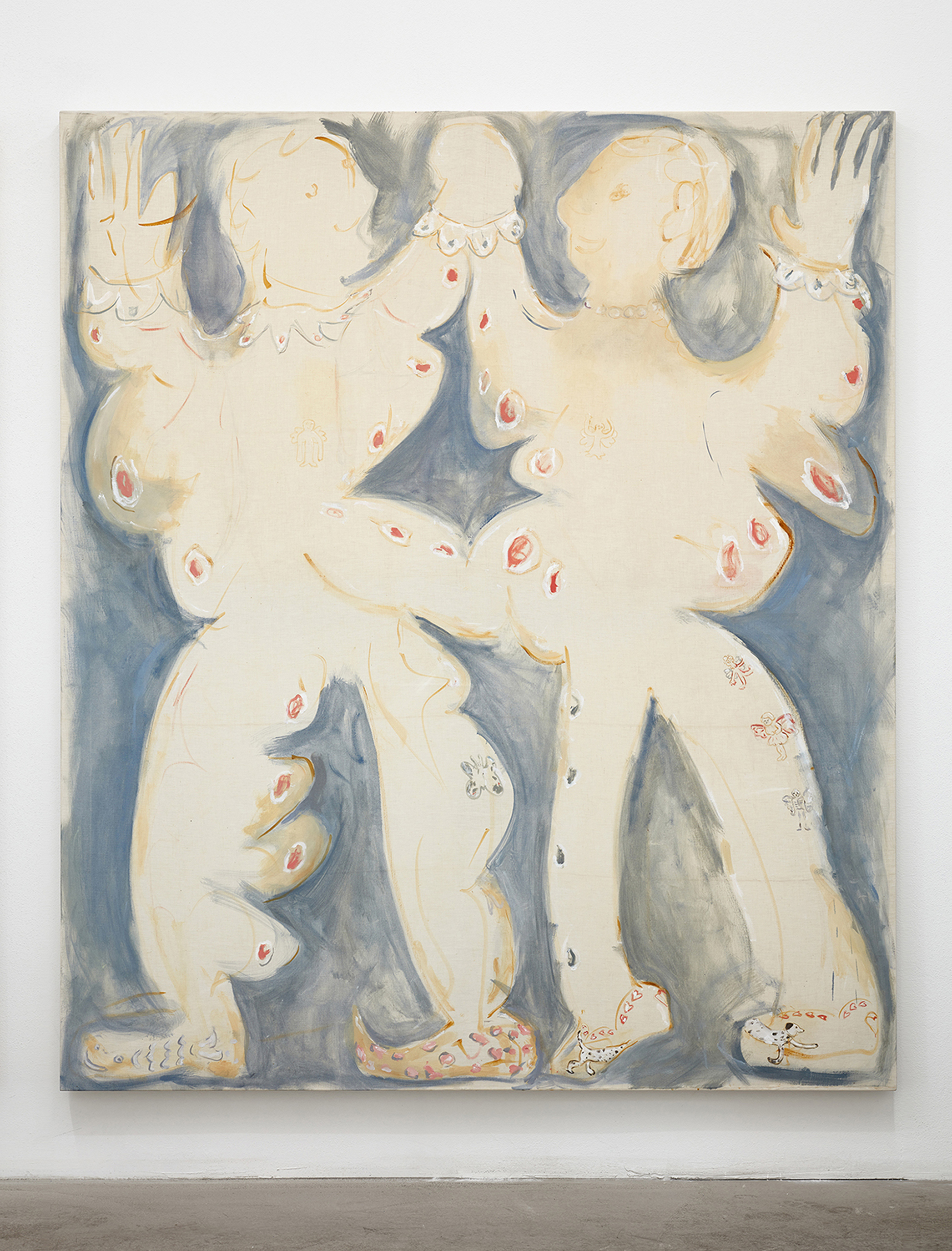
Letizia Lucchetti, "Mock Moth", 2024 (Oil on canvas, 200 x 170 cm).
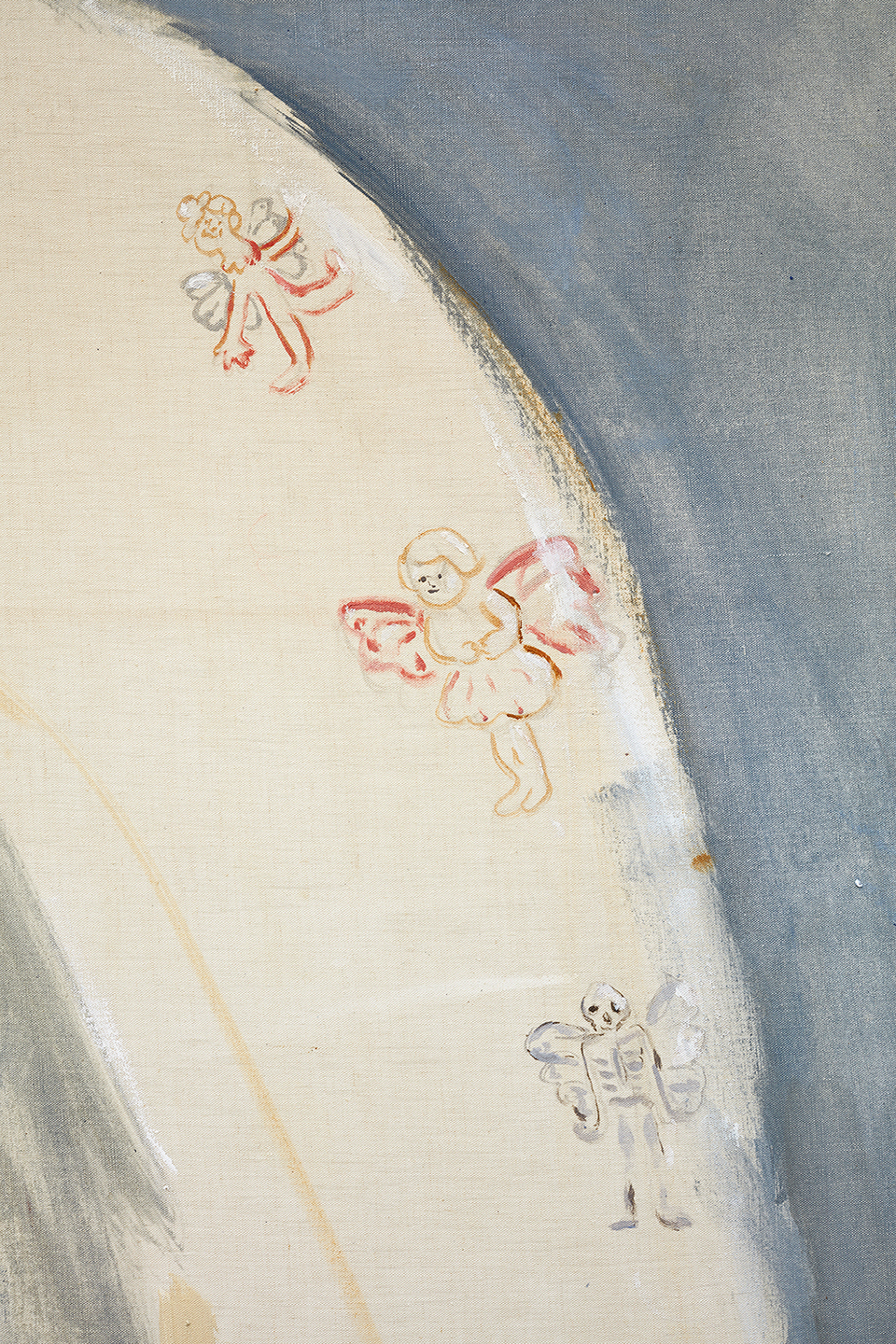
Letizia Lucchetti, "Mock Moth" (detail), 2024 (Oil on canvas, 200 x 170 cm).
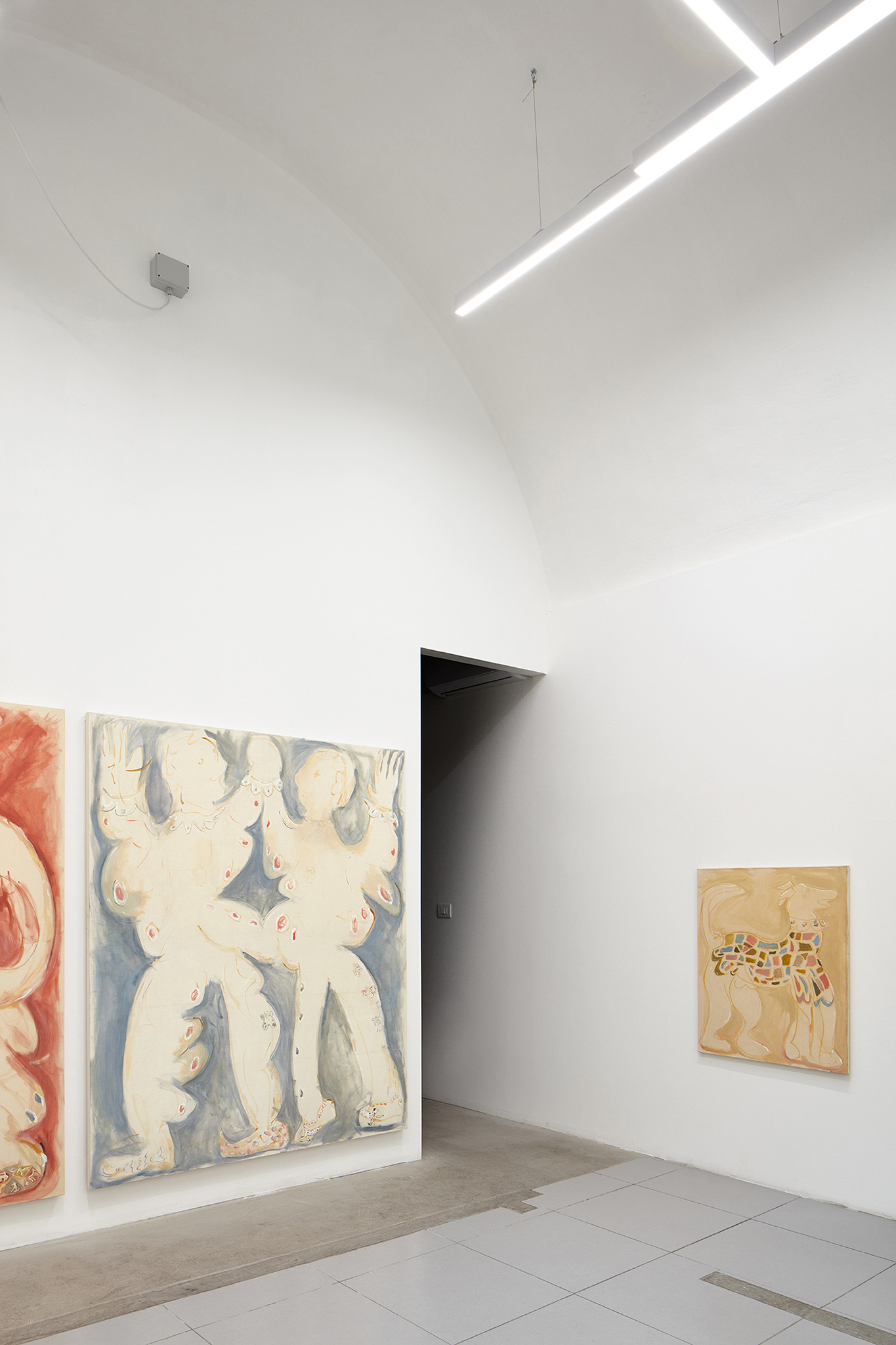
Letizia Lucchetti, "Mock Yourself" installation view.
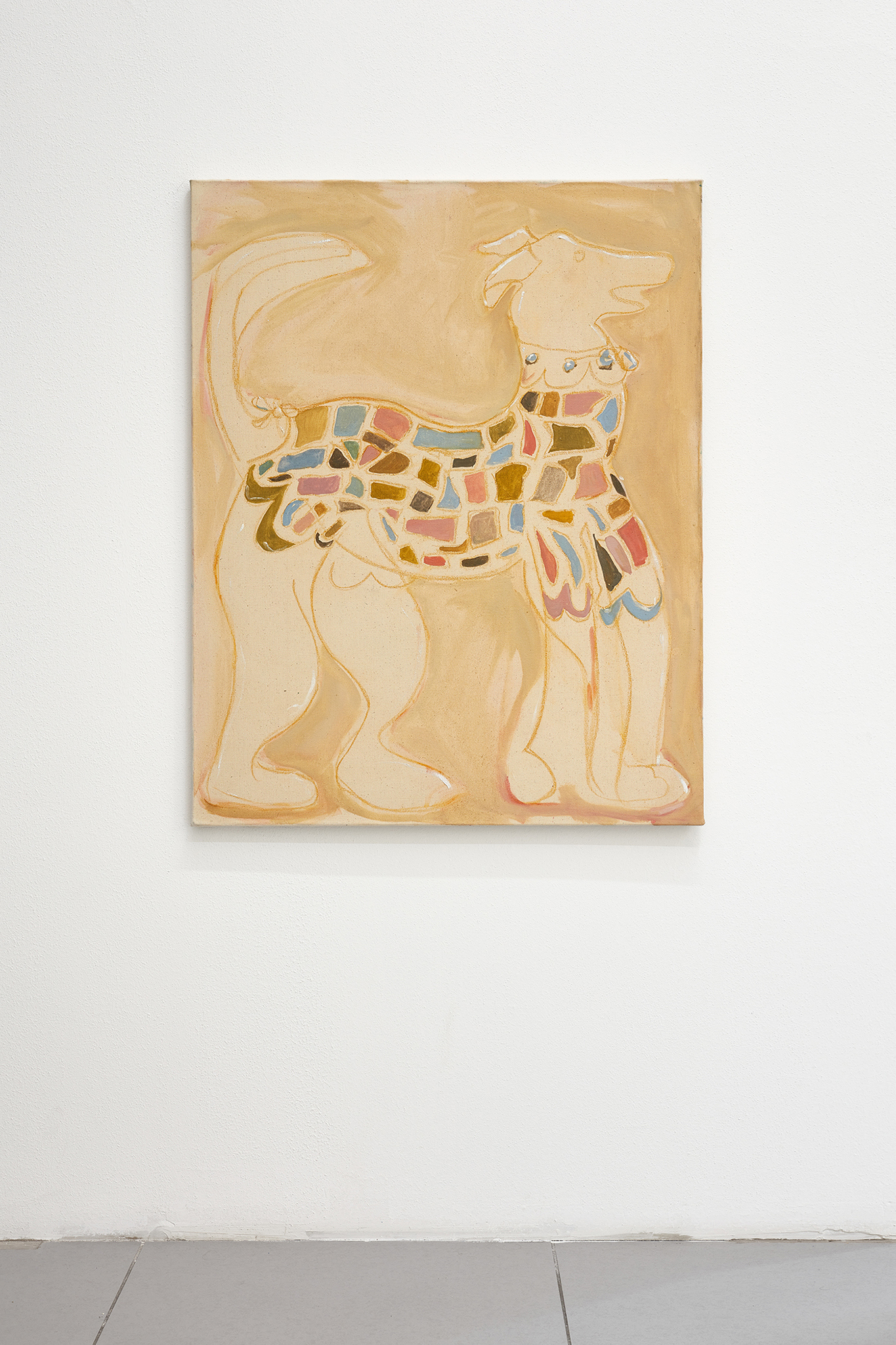
Letizia Lucchetti, "Prince of Dreams", 2023 (Oil on canvas, 95 x 75 cm).
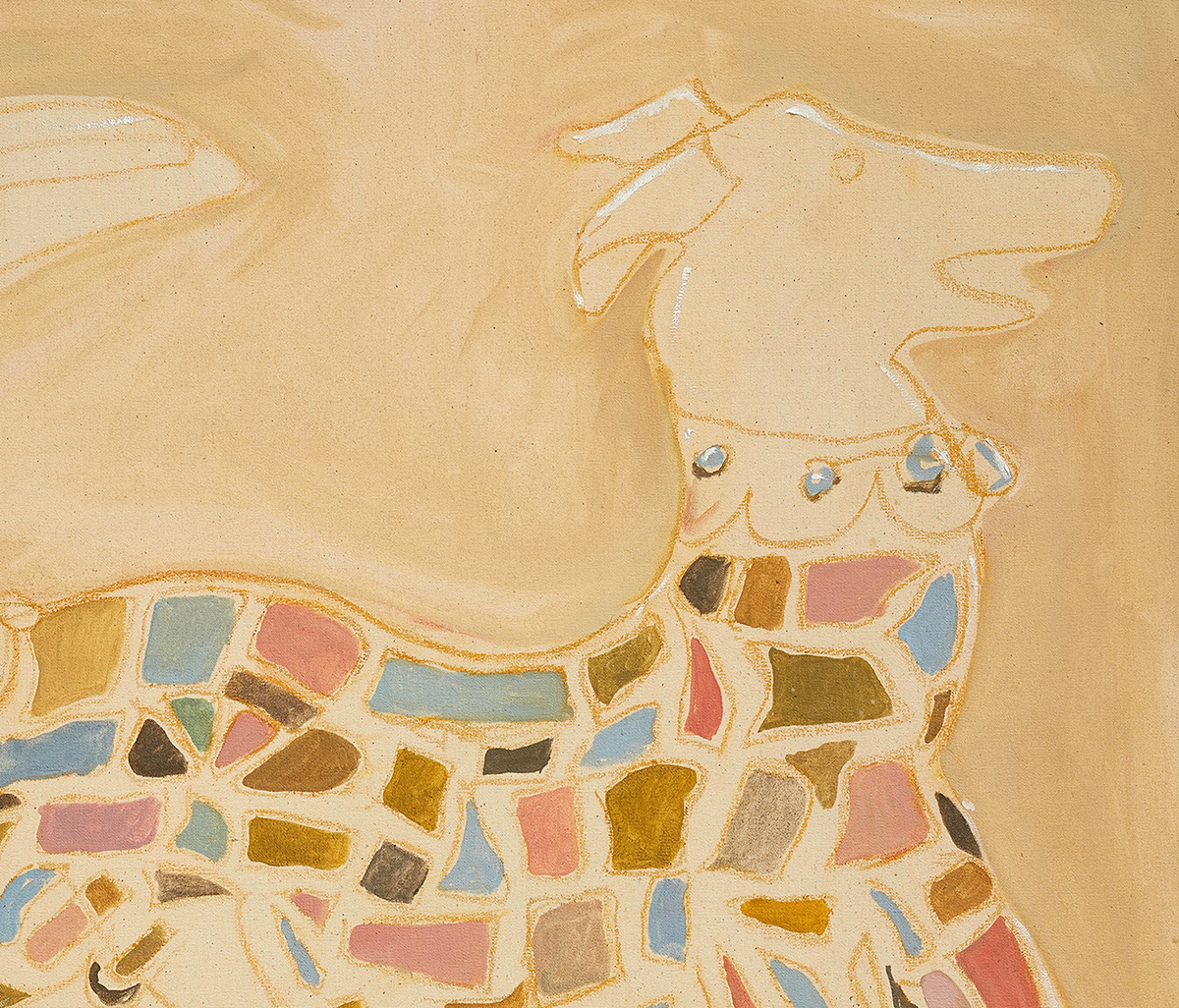
Letizia Lucchetti, "Prince of Dreams" (detail), 2023 (Oil on canvas, 95 x 75 cm).
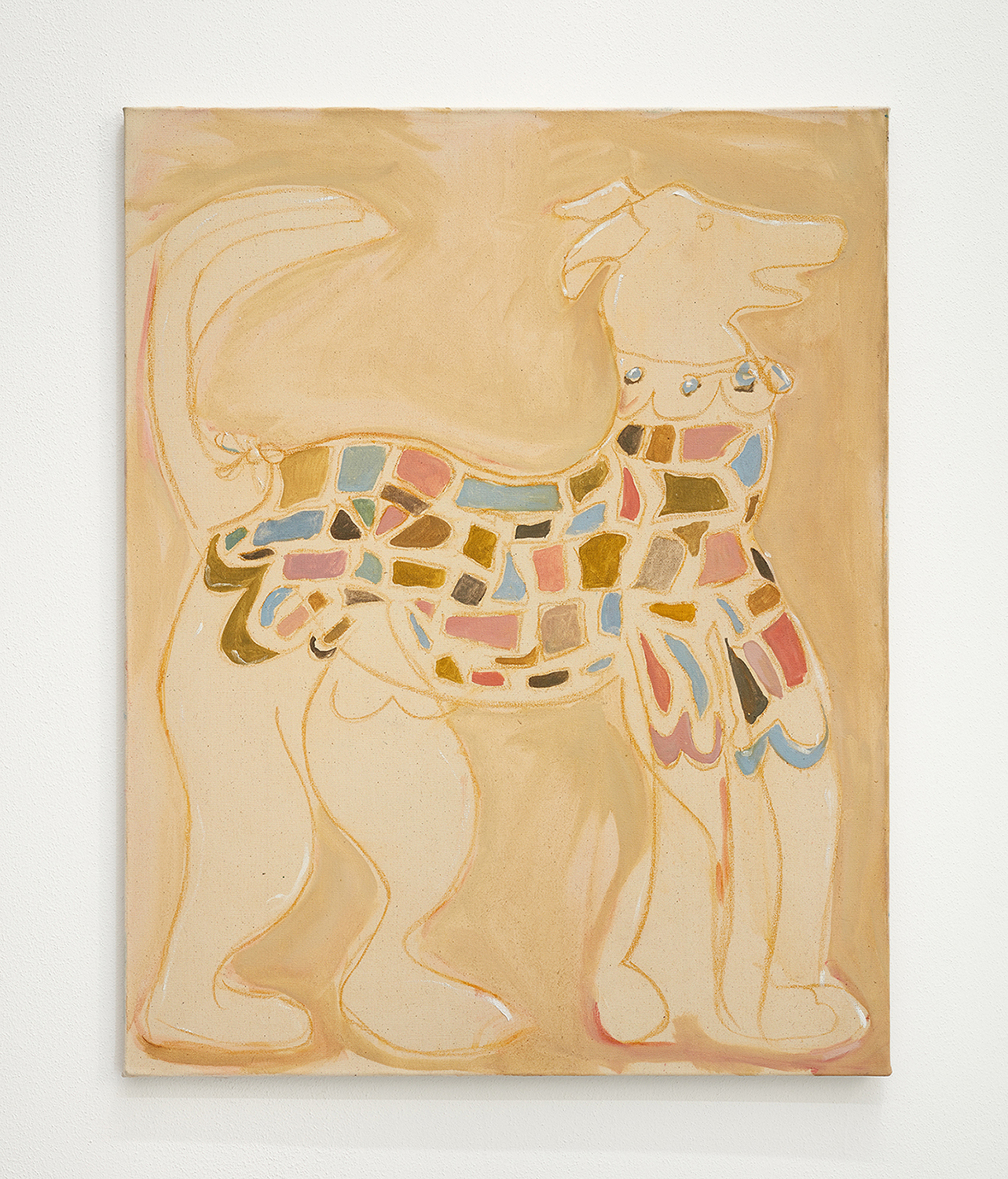
Letizia Lucchetti, "Prince of Dreams", 2023 (Oil on canvas, 95 x 75 cm).

Letizia Lucchetti, "Mock Yourself" installation view.
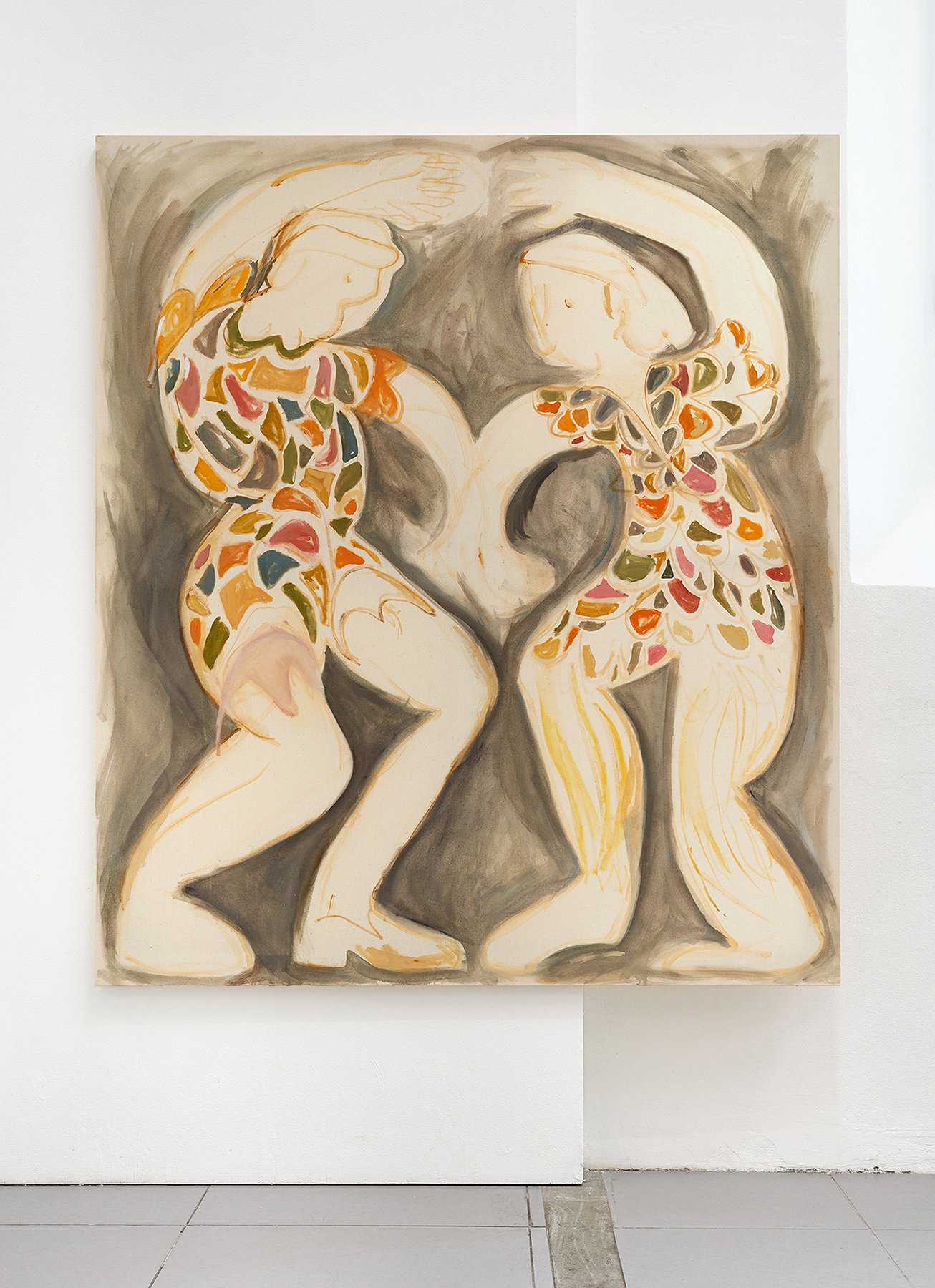
Letizia Lucchetti, "Fear of Being Discovered", 2024 (Oil on canvas, 160 x 140 cm).
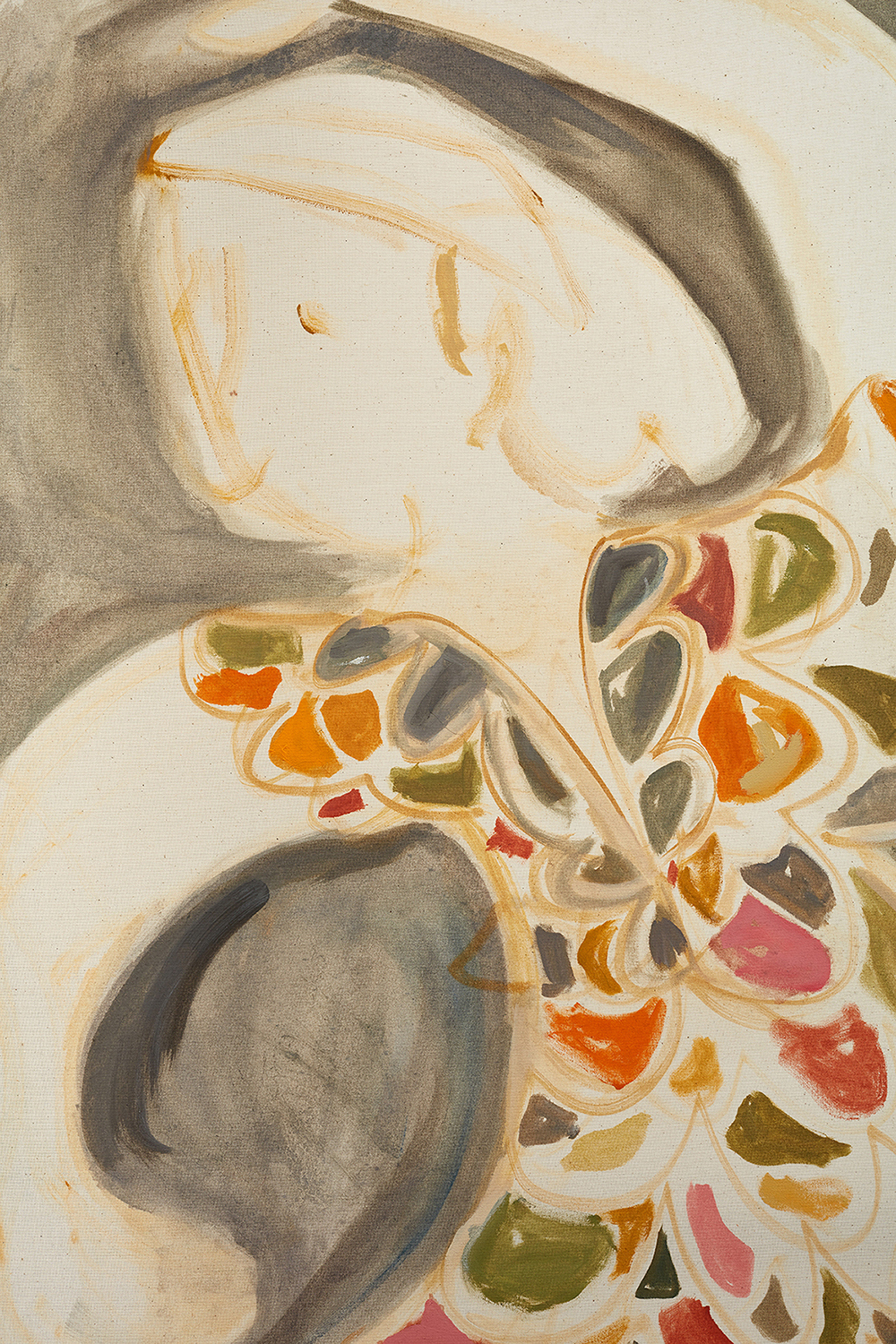
Letizia Lucchetti, "Fear of Being Discovered" (detail), 2024 (Oil on canvas, 160 x 140 cm).
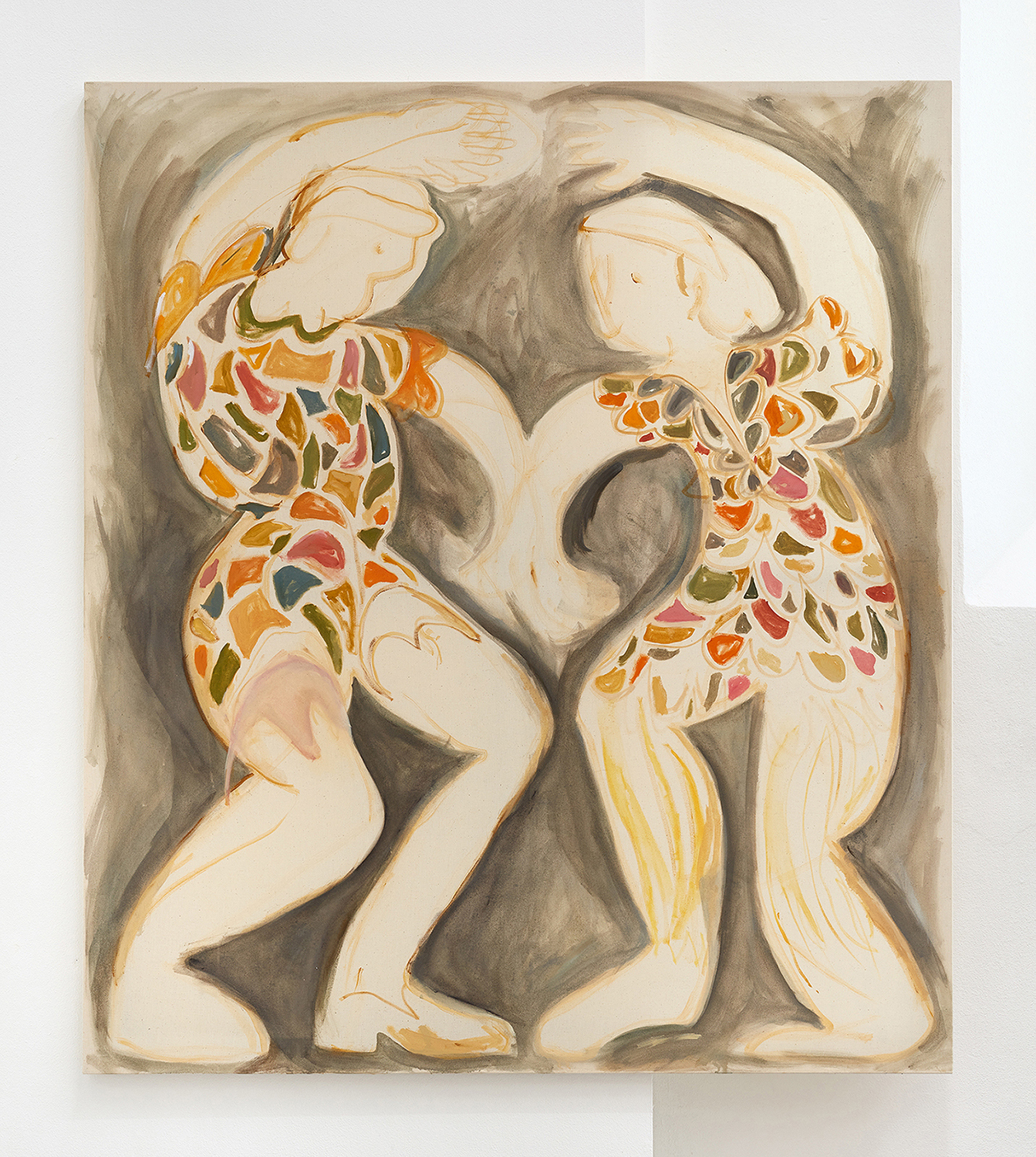
Letizia Lucchetti, "Fear of Being Discovered", 2024 (Oil on canvas, 160 x 140 cm).
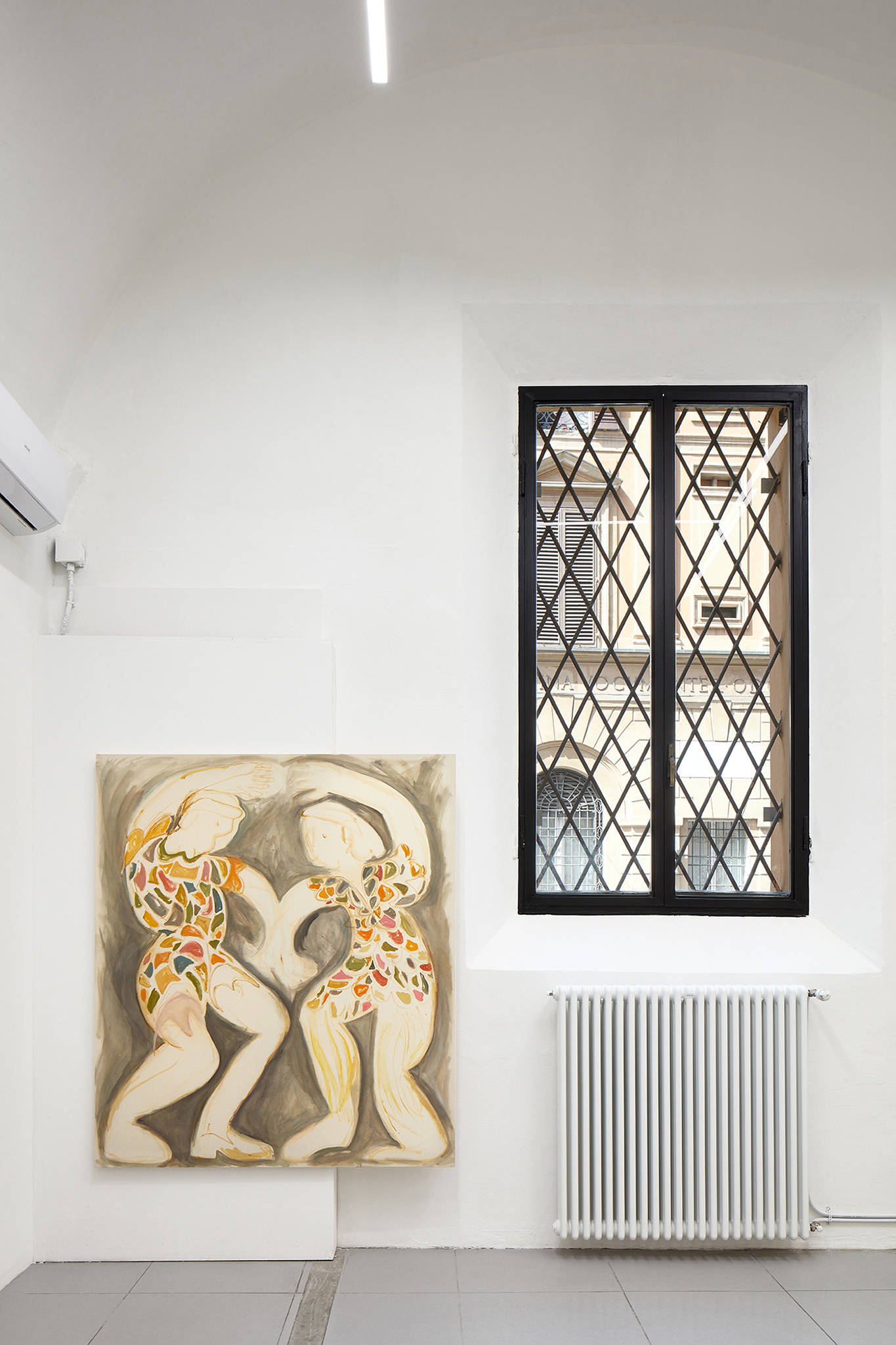
Letizia Lucchetti, "Fear of Being Discovered", 2024 (Oil on canvas, 160 x 140 cm).
"Behind this mask, I ask
Is it me?
Is it you?" (1)
With incredibly ancient origins and roots, which surpass written history and go deeply into ancient eras, carnival is a celebration of very profound symbologies. Transformed into a trivial celebration nowadays, the festivity was linked since its very first Babylonian and Egyptian attestations(2) with ideas of death and rebirth. The masks, the idea of temporarily leaving one’s own roles and deeds in society are seen by more than one scholar(3) as a cyclical erasure of the creation, an apocalypse which dissolves reality only to reconstruct it anew, with an apotropaic and cosmogonic intent. "Mock Yourself" represents a parade of masks, figures by recognisable and unrecognisable shapes, moth-men, dancing characters and even harlequinesque dogs. As for carnival, the only rule for this parade seems to be abandoning one’s own self to embrace this upside down world. The walls are then populated by the masked figures painted by Letizia Lucchetti, they are almost abstract and sketched shapes which remind more of a gestural way of painting than having any ambition of representational coherence. On their clothes, these figures hide tiny details and decorations, maybe reminders of the reality hiding under the indefiniteness of their masks? Carnival, with its capacity to erase the created to renew it, suggests an idea which seems similar to the one of the young Italian artist: the intuition that maybe when masked we can be closer to our own true self. There is something poetic, humorous and deep in this idea and in Lucchetti’s paintings, and if we think that Harlequin himself is seen as a symbol of the infernal,(4) when we are faced with a cute dog gazing at us and turned into an harlequin himself, we can understand of which kind of "depth" we are talking about and the sense of humour that makes these paintings stronger, and shines through the art of Letizia Lucchetti.
(1) YELLOW MAGIC ORCHESTRA, "Behind the Mask" from Solid State Survivor (1979).
(2) The celebrations of Marduk in ancient Babylon and the goddess Isis in Egypt and Rome had similar traits to our idea of carnival.
(3) One can see Mircea Eliade, Alfredo Cattabiani or James George Frazer.
(4) M. Eliade, "Trattato di Storia delle Religioni", Bollati Boringhieri, Torino, 2009.
Mattia Lullini




